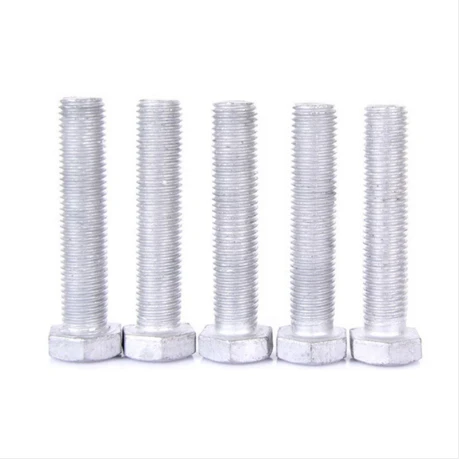

Self-Drilling Socket Head Cap Screws for Easy Installation and Enhanced Performance
اکتوبر . 11, 2024 00:24 Back to list
Self-Drilling Socket Head Cap Screws for Easy Installation and Enhanced Performance
Understanding Self-Tapping Socket Head Cap Screws
Self-tapping socket head cap screws are an essential component in various industrial and mechanical applications. These specialized fasteners combine functionality with ease of use, providing a reliable solution for fastening materials without the need for pre-drilled holes. With their unique design and advantageous features, they have become increasingly popular in construction, automotive, and manufacturing sectors.
What are Self-Tapping Socket Head Cap Screws?
Self-tapping socket head cap screws are a type of screw that can create their own mating thread when driven into a material. The socket head refers to the cylindrical, recessed design that requires an Allen wrench or hex key for installation and removal. This unique structure gives the screw excellent grip and torque, making it ideal for applications where space is limited and precision is crucial.
Generally made from high-strength materials such as stainless steel or alloy steel, these screws exhibit resistance to corrosion and wear, which is vital for applications exposed to harsh environments. They come in various sizes and thread configurations, making them versatile for many uses.
The Benefits of Self-Tapping Socket Head Cap Screws
1. No Pre-drilling Needed One of the primary advantages of self-tapping screws is that they eliminate the need for pre-drilling. This not only saves time during installation but also reduces labor costs, making the overall process more efficient.
2. Versatility These screws can be used on various materials, including metals, plastics, and wood. This adaptability allows engineers and technicians to use a single type of fastener for multiple applications, simplifying inventory and reducing costs.
self tapping socket head cap screw

3. Robust Design The socket head design enables the application of higher torque during fastening without stripping the threads. This feature is particularly beneficial in high-load applications, where reliability and strength are paramount.
4. Ease of Use The hexagonal recess allows for quick and easy installation and removal, especially in confined spaces where traditional screwdrivers might not fit. This simplifies maintenance and repair processes, enhancing overall operational efficiency.
5. Reduced Mechanical Damage Because self-tapping screws create their own threads, there is less risk of damaging the material being fastened compared to traditional screws. This benefit is particularly significant in softer materials or when working with delicate components.
Applications
Self-tapping socket head cap screws are widely used in various fields. In the automotive industry, they are employed to assemble engine components, chassis fittings, and other critical parts where strength and reliability are crucial. The manufacturing sector utilizes them in machinery assembly, product enclosures, and fixtures, taking advantage of their durability and ease of installation. Additionally, in the construction industry, these screws are used in applications ranging from structural framing to permanent installations, retaining their structural integrity even under extreme conditions.
Conclusion
Self-tapping socket head cap screws are indispensable in modern engineering and manufacturing. Their ability to simplify the fastening process while maintaining strength and reliability makes them a preferred choice in various applications. Understanding their features and benefits can enhance project efficiency and lead to better outcomes in mechanical assembly and construction practices. As industries continue to evolve, these fasteners will remain a critical component of effective and efficient operations. Whether you are an engineer, a technician, or a DIY enthusiast, incorporating self-tapping socket head cap screws into your toolbox can significantly improve your work.
Latest news
-
Hot Dip Galvanized Bolts-About LongZe|High Strength, Corrosion Resistance
NewsJul.30,2025
-
High-Strength Hot Dip Galvanized Bolts - Hebei Longze | Corrosion Resistance, Customization
NewsJul.30,2025
-
Hot Dip Galvanized Bolts-Hebei Longze|Corrosion Resistance&High Strength
NewsJul.30,2025
-
High-Strength Hot-Dip Galvanized Bolts-Hebei Longze|Corrosion Resistance&High Strength
NewsJul.30,2025
-
Hot Dip Galvanized Bolts-Hebei Longze|Corrosion Resistance&High Strength
NewsJul.30,2025
-
Hot Dip Galvanized Bolts - Hebei Longze | Corrosion Resistance, High Strength
NewsJul.30,2025

